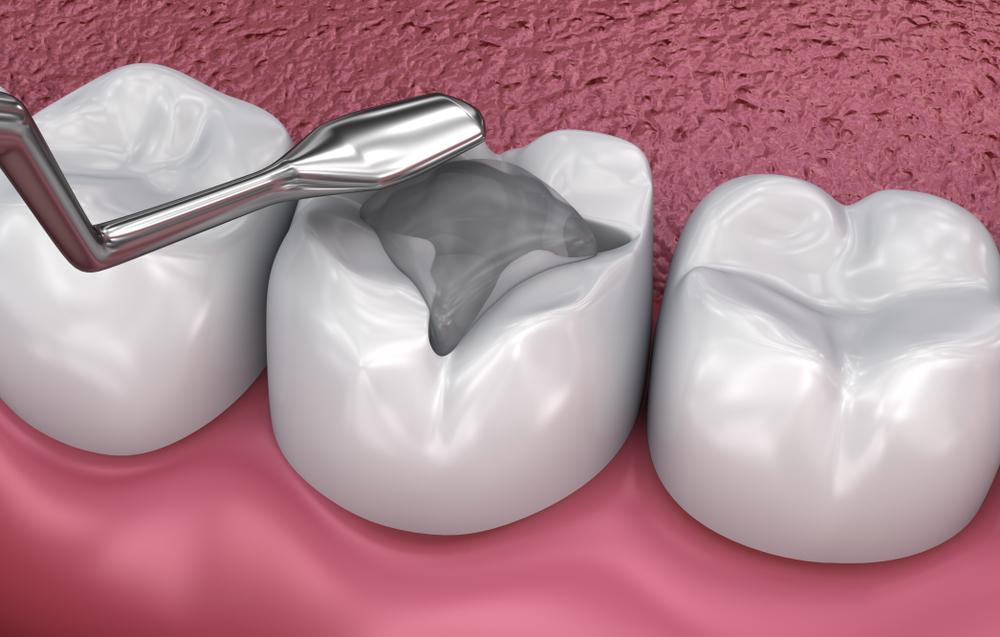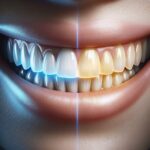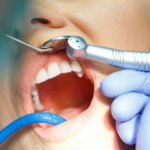Can You Eat After Dental Filling?
You can eat after a dental filling, but wait at least 24 hours for best results. Soft foods are recommended immediately after the procedure.
Dental fillings are a common dental procedure used to restore decayed teeth. After getting a filling, it’s essential to know when and what to eat. Eating too soon can interfere with the filling’s bonding process or cause discomfort. Patients may experience numbness if local anesthesia was used, making it crucial to wait before eating.
Soft foods like yogurt, mashed potatoes, or smoothies are ideal for the first day. This approach helps avoid damage to the filling and ensures a smoother recovery. Proper post-filling care can lead to long-lasting results and improved oral health. Be sure to follow your dentist’s specific instructions for optimal recovery.
Introduction To Dental Fillings
Dental fillings help restore teeth damaged by decay. They come in various types. Each type serves a different purpose.
| Type of Filling | Description |
| Amalgam | Made from metal, very strong and durable. |
| Composite | Tooth-colored and blends well with natural teeth. |
| Ceramic | Great for cosmetic reasons, highly resistant to staining. |
| Glass Ionomer | Releases fluoride, good for fillings below the gum line. |
Dental fillings protect teeth from further damage. They help keep your smile healthy and strong. Eating after getting a filling is often safe. Wait for your dentist’s advice on specific food choices.
Immediate Aftercare For Dental Fillings
After getting a dental filling, some changes occur in your mouth. You may feel numbness for a few hours. This numbness is due to the anesthesia used during the procedure. Avoid eating until the numbness wears off. Eating while numb can lead to biting your cheek or tongue.
Avoid hard or sticky foods for at least 24 hours. Foods like gum, candy, and nuts can harm the filling. Hot drinks may also cause discomfort. Stick to soft foods like yogurt or applesauce during this time. Make sure to stay hydrated with water.
| Activities to Avoid |
| Eating until numbness fades |
| Chewing hard foods |
| Consuming sticky snacks |
| Drinking hot beverages |
Eating After Dental Fillings
After a dental filling, it’s important to choose the right foods. Soft foods are the best option. Foods like yogurt, applesauce, and mashed potatoes are safe to eat. They are gentle on your teeth and won’t cause discomfort.
It’s best to avoid hard, crunchy, or sticky foods. Items such as popcorn, nuts, and chewing gum can harm your filling. Hot foods and drinks may also cause sensitivity. Wait a few hours before consuming anything too hot or cold.
| Safe Foods | Foods to Avoid |
| Yogurt | Popcorn |
| Applesauce | Nuts |
| Mashed Potatoes | Chewing Gum |
| Soft Fruits | Hard Candies |
Understanding Sensitivity Post-filling
After a dental filling, sensitivity can occur. This is normal for many patients. Temperature sensitivity is common, especially to hot and cold foods.
To manage this, avoid extreme temperatures for a few days. Soft foods are a better choice during this time. Gradually reintroduce your favorite foods.
Pressure sensitivity may also happen. Chewing can feel uncomfortable at first. Eat on the opposite side to reduce pressure on the filling.
Always consult your dentist if pain persists. Proper care helps in recovery and comfort.
Chewing Tips After Dental Work
After dental fillings, chewing carefully is important. Start with soft foods to avoid discomfort. Foods like yogurt, mashed potatoes, and smoothies are great options.
Wait at least 24 hours before chewing on the filled tooth. This allows the filling to set properly. If you feel any pain or discomfort, consult your dentist.
Always avoid sticky or hard foods for the first few days. These can damage the filling. Remember to maintain good oral hygiene after eating.
Listening to your body is key. If something feels off, seek professional advice quickly.
Oral Hygiene Post-filling
After a dental filling, maintaining oral hygiene is very important. Brushing should be gentle. Use a soft-bristled toothbrush to avoid irritation. Flossing is essential too. Be careful around the filled area. This helps prevent plaque buildup.
Rinses and mouthwash can help keep your mouth fresh. Choose an alcohol-free mouthwash. This reduces the risk of irritation. Rinse your mouth after eating. This helps remove food particles. Avoid rinsing immediately after the filling for at least 24 hours.
| Action | Recommendation |
| Brushing | Use a soft-bristled toothbrush. |
| Flossing | Be gentle around the filled area. |
| Mouthwash | Choose alcohol-free options. |
| Rinsing | Wait 24 hours after filling. |
Monitoring For Complications
After getting a dental filling, watch for signs of infection or allergy. Common symptoms include increased pain, swelling, or redness around the filling. You may also notice sensitivity to hot or cold foods.
If you experience persistent discomfort, it’s important to contact your dentist. Changes in taste or unusual discharge can also indicate a problem. Early detection helps prevent further issues.
Keep an eye on your filling for any looseness or cracks. These can lead to complications if not addressed quickly. Always trust your instincts when it comes to your oral health.
Long-term Care For Dental Fillings
Regular dental check-ups are important for maintaining dental fillings. These visits help detect any issues early. A dentist can check if the filling is still intact. This prevents further problems like decay.
During check-ups, the dentist will clean your teeth. They will also examine your fillings closely. If a filling shows signs of wear, it can be replaced. Keeping fillings in good shape is essential for oral health.
Brushing and flossing daily also help maintain fillings. Avoid hard foods that can damage them. Following your dentist’s advice ensures long-lasting dental work.
Conclusion: Ensuring A Healthy Recovery
After a dental filling, wait at least 24 hours before eating hard foods. Soft foods are best for the first day. Avoid sticky candies and nuts to protect the filling.
Follow your dentist’s advice for a smooth recovery. Regularly check for any discomfort. If pain occurs, contact your dentist right away.
| Key Points | Recommendations |
| Wait 24 hours | Eat soft foods |
| Avoid hard foods | No sticky candies |
| Monitor discomfort | Contact dentist if needed |
Staying diligent helps ensure a healthy recovery. Remember to brush and floss gently.
Westwood Gardens Dental Clinic: One of the best dental clinics in Richmond Hill, Ontario
For those in Richmond Hill, Ontario, Westwood Gardens Dental Clinic is a trusted provider of high-quality dental care, including partial dentures. Call them today at 647-905-7303 or email info@westwoodgardens-dental.ca to schedule a consultation. You can also visit their clinic at Unit 18, 8868 Yonge St, Richmond Hill, ON, L4C 1Z8 for a comprehensive assessment and personalized treatment plan.
Frequently Asked Questions
Can I Eat Immediately After A Dental Filling?
It’s generally recommended to wait at least 24 hours before eating. This allows the filling to set properly. If you must eat right away, choose soft foods and avoid hot or sticky items. This minimizes discomfort and prevents damage to the new filling.
What Foods Should I Avoid After A Filling?
Avoid hard, sticky, or crunchy foods for at least 24 hours. These items can dislodge or damage the filling. Also, steer clear of very hot or cold foods, as they may cause sensitivity. Stick to soft foods like yogurt, mashed potatoes, and smoothies during this time.
How Long Will My Filling Feel Sensitive?
Sensitivity can last a few days to a week. This is normal as your tooth adjusts to the filling. However, if pain persists beyond this period, consult your dentist. They may need to adjust the filling or check for other issues.
Is It Safe To Drink Coffee After A Filling?
It’s best to avoid hot beverages like coffee immediately after getting a filling. Hot drinks can increase sensitivity and discomfort. Once any initial sensitivity subsides, you can enjoy coffee, but consider letting it cool slightly first to avoid irritation.
Conclusion
Eating after a dental filling requires some caution. It’s best to wait at least two hours before consuming anything. Soft foods are ideal to avoid discomfort. Always follow your dentist’s advice for optimal healing. Taking these steps ensures your filling lasts longer and keeps your smile healthy.Stay mindful and care for your teeth!




